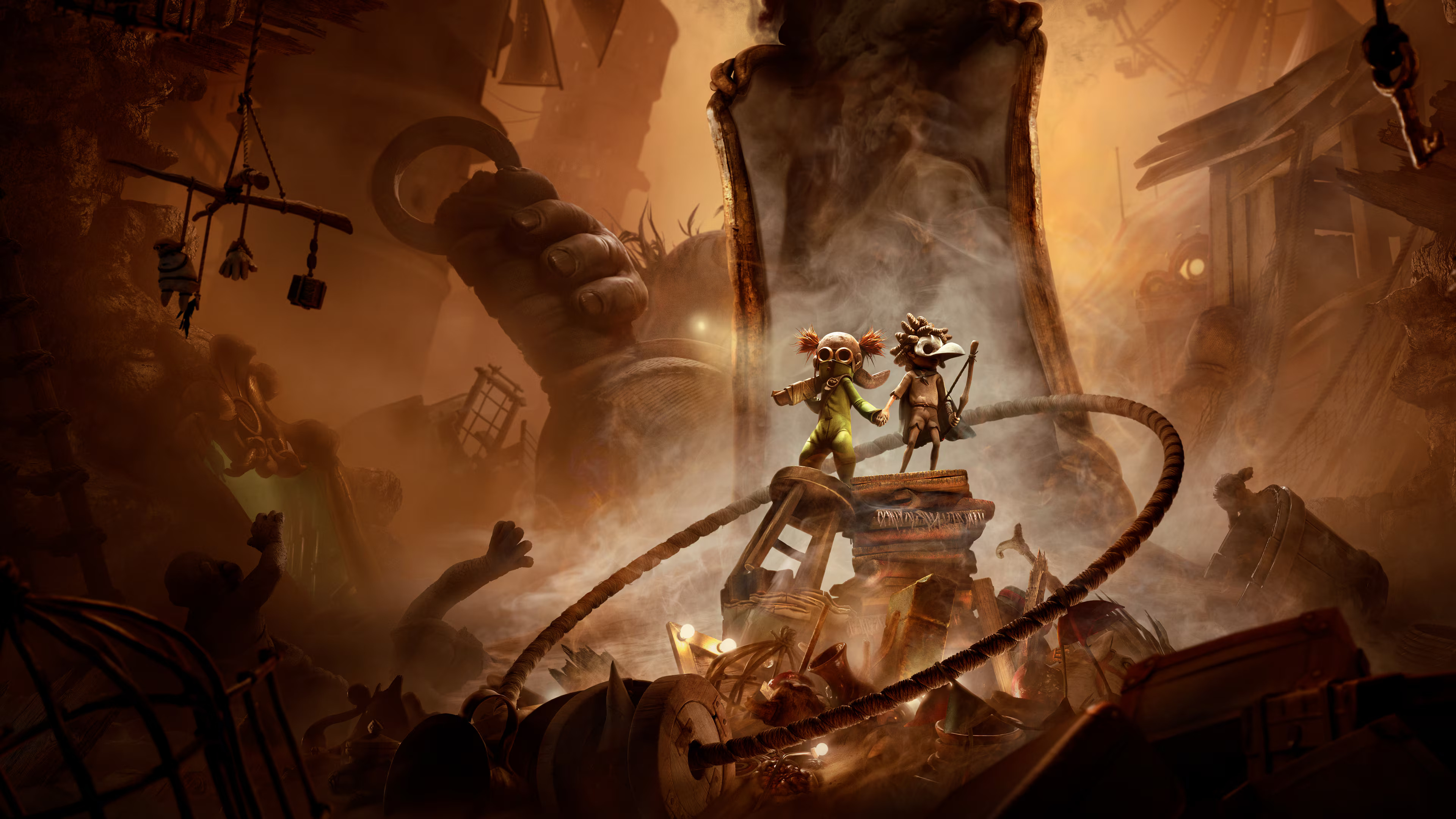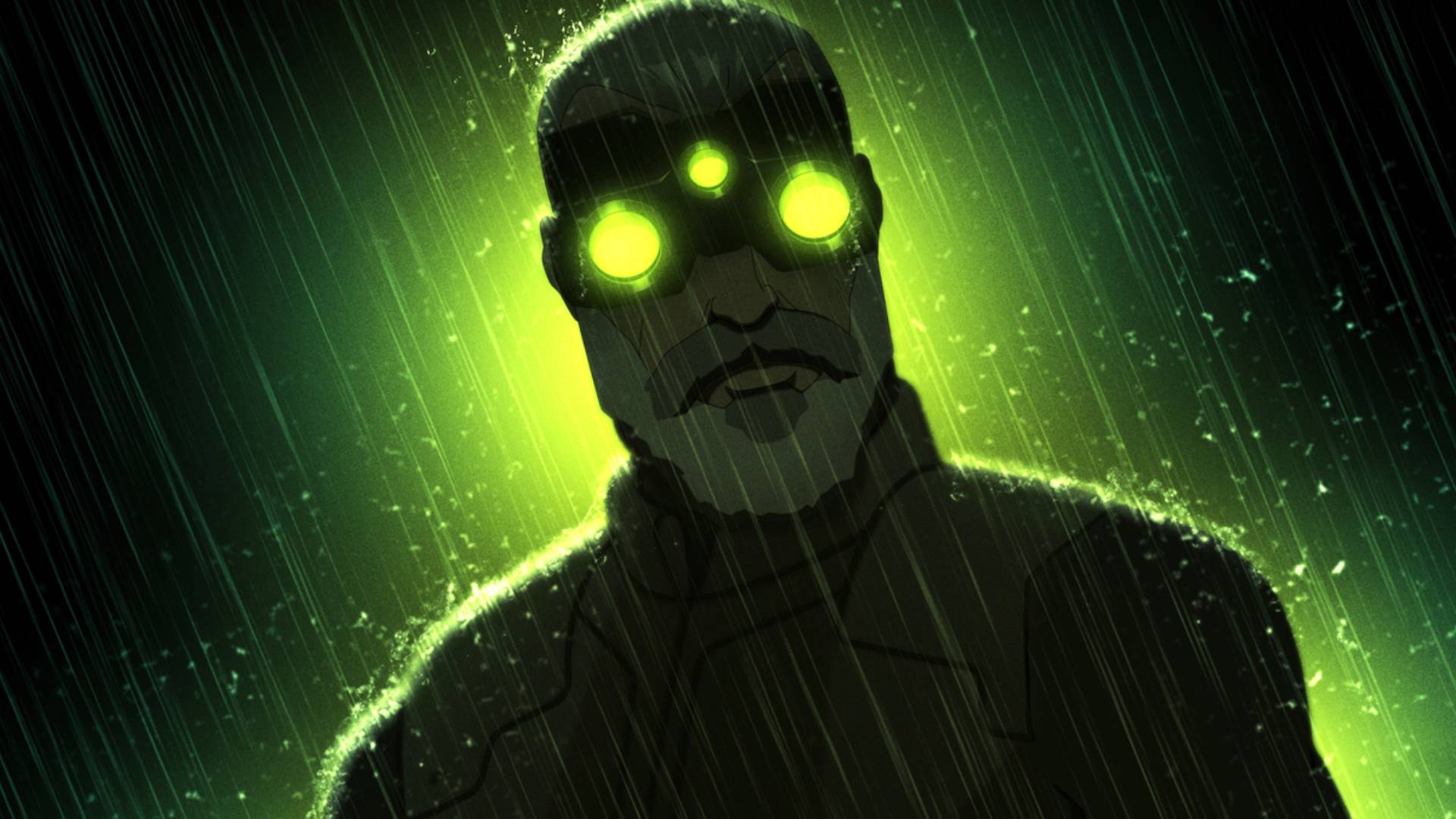Drop the mic. In video games we can communicate better without words
Verbal communication isn't all it's cracked up to be. Just ask anyone who's endured the rancid stench of a stranger's halitosis - also known as 'paying the iron price' for the last free seat on the bus. In keeping with our species' tendency to ruin every innovative idea - from using the Internet to scam the naive, to encouraging reality TV stars to procreate - now it seems even the humble headset has succumbed to our all-consuming lack of care.
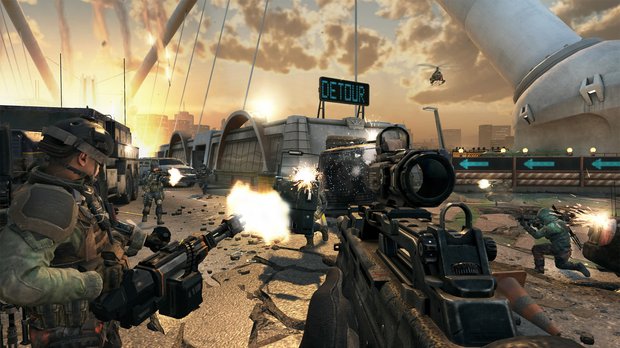
Oh, the in-game microphone, we had such high hopes for you. You promised to connect us, to let us chat, mingle and strategise with other like-minded gamers anywhere in the world. You never said anything about playing beleaguered babysitter to a bunch of late-teething teenagers. We all know the sort - they're the absolute bane of the multiplayer matchup, attracted to a live mic like flies on faeces.
Only by playing with known friends - in private chats - can we hope to avoid these mad-eyed mic fiends. It’s such a universally recognised issue that in some quarters the rise of the headset has had the inverse of the intended effect, making players instinctively less willing to engage with others they meet online. Sort of like springing a surprise talent show on a group of dogged introverts. "Thanks for the opportunity" they seem to say, "now leave us alone forever".
It's a basic issue of online etiquette and one that I haven't the foggiest concept how to actually fix. Instead, what I'm going to talk about is more of a 'silver linings'-type affair - an unlikely positive to all of this unremitting muting. You see, to my mind at least, where audible chat can sometimes be a turn-off, the absence of microphones can bring about some refreshingly civil behaviours.

So, what am I trying to say here - that without verbal communications, players can become… nicer? So far, so obvious, right? Next you'll be telling me that Mario likes moustaches. But what happens when we attempt to communicate despite that silence? That’s where things get interesting, and humanity actually starts to display its best colours rather than its shabbiest.
Just like meeting a non-English speaker abroad, instances like these can quickly turn into a jaunty game of charades. Sure, we might end up performing the entire Funky Chicken on a Parisian street corner, but I'll be damned if we don't enjoy the experience just a little bit. In essence then, silence forces us to get creative, to establish a rough and ready coda with our equally flabbergasted teammates - by pointing here, jumping there or doing just about anything in between.
When sharing without words, even a simple statement becomes something of a puzzle, the silent game world - heck, even a lobby, sometimes - turning that much more 'game-like' than any mic'd up alternative. It's a game that requires not only teamwork to succeed, but a refreshing degree of patience and understanding too. We’re not just communicating, but creating a shared means of communicating, and that’s nothing if not a wholesome experience.
Weekly digests, tales from the communities you love, and more
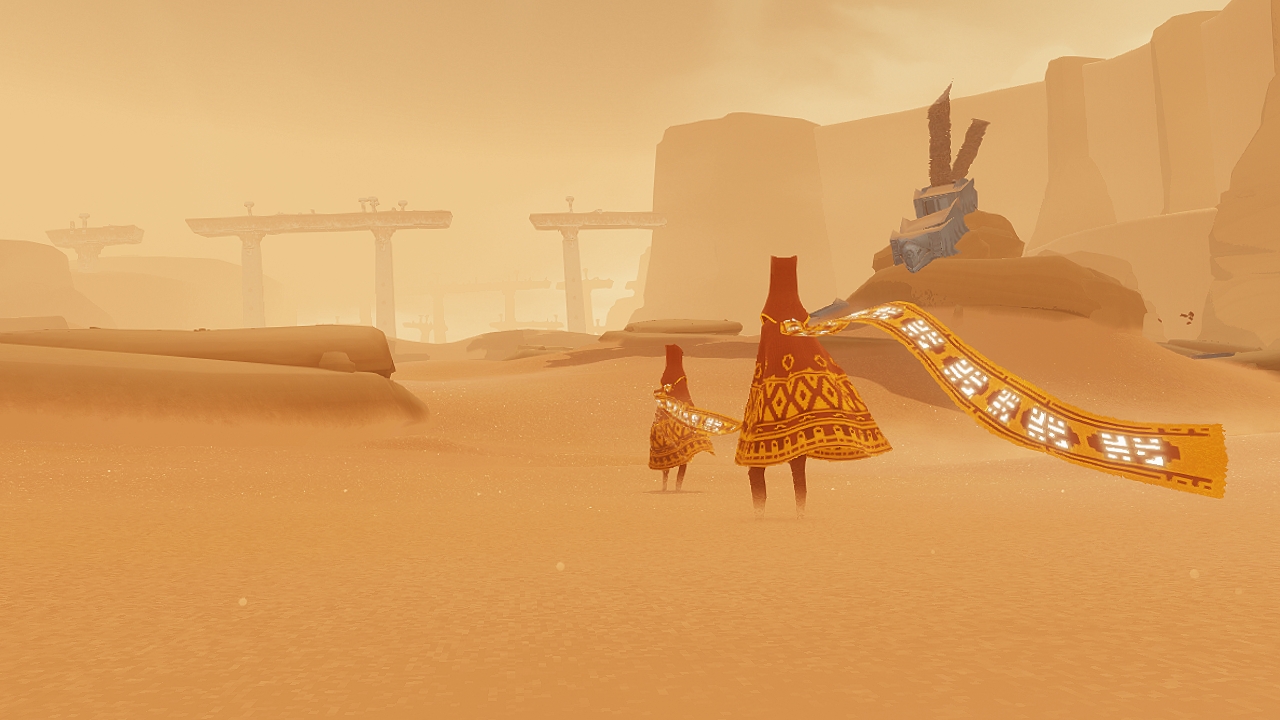
Perhaps the most notable, most recent example of a game to completely disallow mic chat is 2011's Journey. Its developers adopted this approach in order to maintain the game's stunning sense of atmosphere, and also to encourage players to interact in more subtle, less confrontational ways. I'd say that they succeeded - so much so that I'll defy anyone to come up with an instance of Journey's co-op play that left them with a sour taste in their mouth. Oh sure, some allies may have left at crucial moments, or run around in circles, but even the most wickedly malevolent of players would have had a hard time causing consternation here.
'But Journey is a beautiful, chilled-out experience', I hear you cry. 'What about other, more visceral adventures - gut-punching action titles that burst our blood vessels, and cause irate 12-year-olds to question our mother's chastity'? Well, if I might be so bold as to break with website tradition here, and talk about a little game named Destiny, the same also holds true here. Just this week I had the bizarre fortune to be shot at while out collecting resources. As it turned, out my apparent assailant - a high-level player just whiling away the hours - had spotted me scavenging for scrap and decided to take me on a whistle-stop tour of the level's best loot.
Through a mix of helpful demonstrations and clever cues, my guide directed me to a whole heap of useful items. After which, he or she simply waved and disappeared, just like in the ending to Field of Dreams, except without me blubbering away like a baby. Pretty nice though, right? Now let's imagine that scenario played out with live microphones. It could have worked out alright, but the fact remains that – due to our unfortunate learned wariness - most unsolicited, online interactions are at least initially greeted as invasive and potentially unwanted.
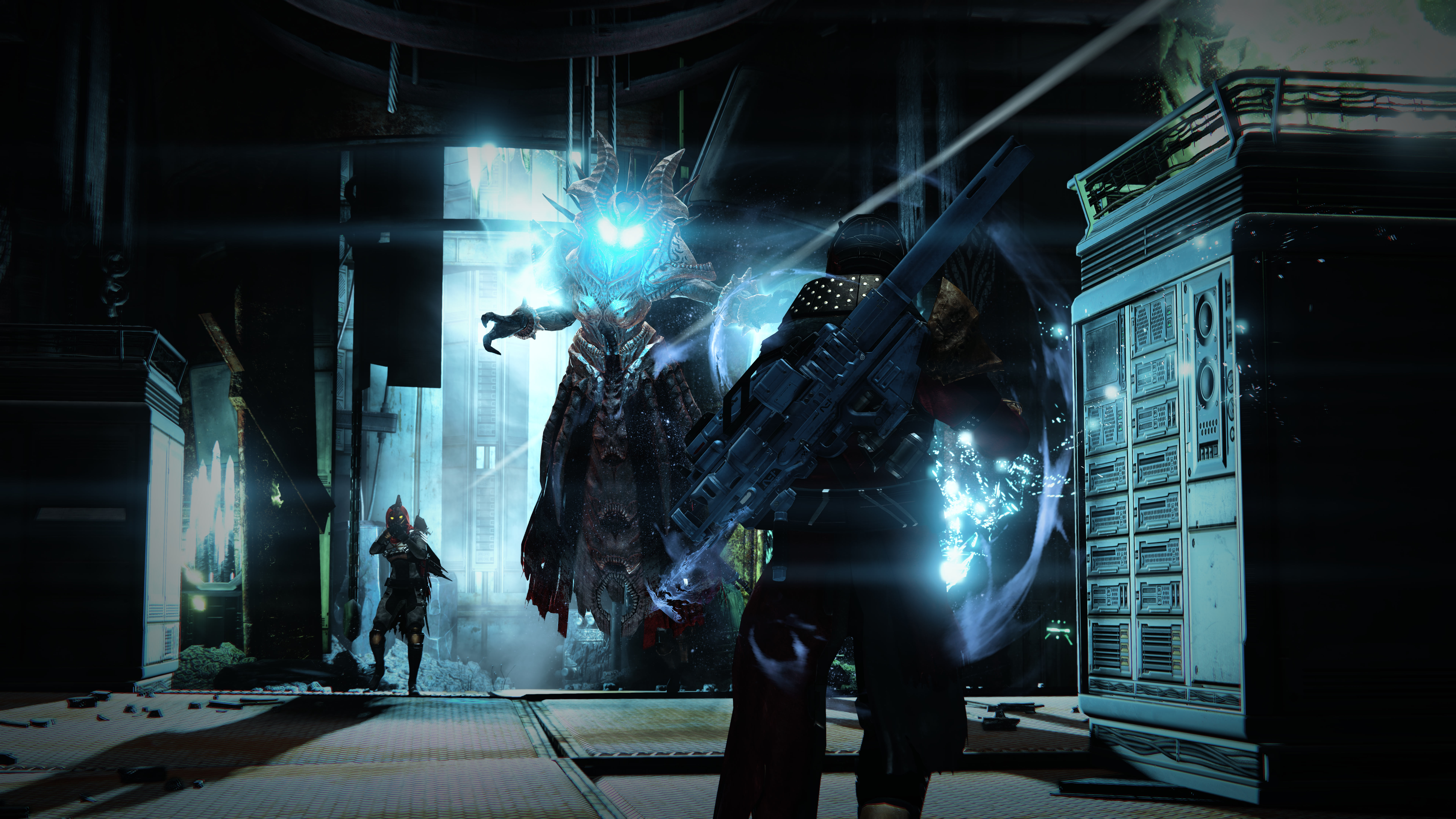
But by making contact purely through the gameplay mechanics that we were both sharing and enjoying – the fabric which bound our Destiny experience, to get a bit Yoda for a moment – my Spinmetal Samaritan’s introduction felt entirely natural and implicitly trustworthy. This random act of kindness would've been that much more difficult to achieve had verbal or even text-based communication been involved.
And that's just one of the many benefits of co-operating sans-language. For instance, the more video games adopt an always-online approach, the greater the threat becomes of players casually chatting over carefully prepared narratives. With silent play, that just isn't an issue. Likewise, co-oping with gamers with whom we don’t share a language suddenly becomes that much more feasible, drastically increasing the pool of potential comrades online.
There's no doubting that voice chat can be one hell of a tool in the right hands, providing as it does an enormous benefit to teams actually willing to work together. And if you're prepared to put up with the random loudmouths, then I say more power to you. If not though, then perhaps it's time you learned to simply enjoy the silence. Because with a little more effort, far more harmonious experiences are possible. And that, surely, is the goal of human communication in general. Give it a go. Your eardrums, sanity and faith in humanity will thank you.

